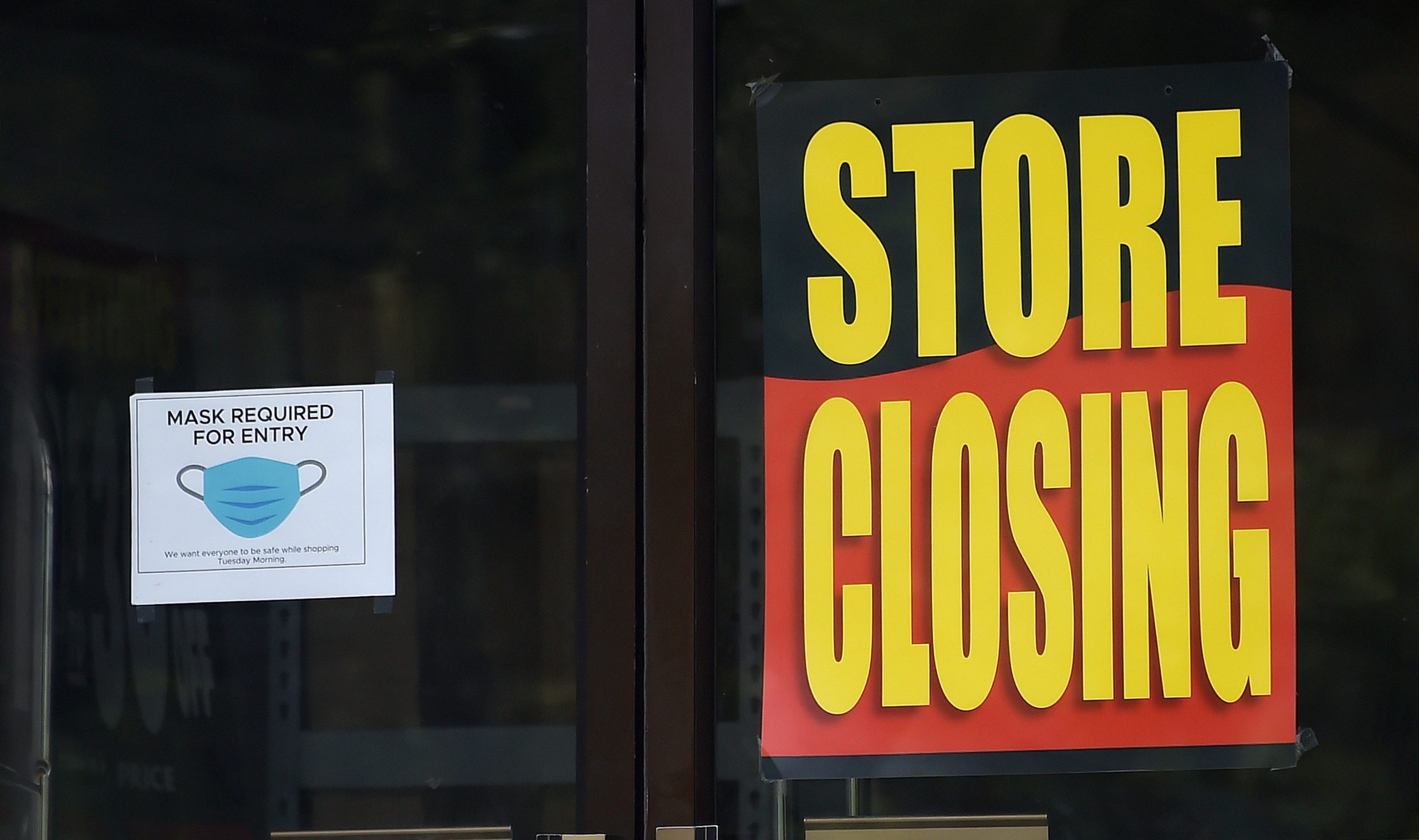A study published Wednesday by the JAMA Network medical journal found that the number of Americans reporting symptoms of depression has more than tripled during the coronavirus pandemic.
The study included a nationally representative survey of 1,441 respondents taken earlier this year, which found that 28% of respondents reported symptoms of depression. This data was compared to an earlier survey of 5,065 respondents taken between 2017 and 2018, which found that only 9% of respondents had reported symptoms of depression then.
Catherine Ettman, the lead researcher and co-author of the study, told Health Day the increase in reported depression symptoms was larger than expected.
“We were surprised at the high levels of depression,” she said. “These rates were higher than what we’ve seen in the general population after other large-scale traumas like September 11 and Hurricane Katrina.”

A store displays a sign before closing down permanently amid the coronavirus pandemic (Olivier Douliery/AFP via Getty Images)
Researchers believe that the spike in depression rates can be attributed to a combination of fear and uncertainty in reaction to coronavirus as well as the economic and social impacts of the pandemic, Fox News reported. (RELATED: COVID-19 Is A ‘Mental Health Threat,’ Doctor Says)
The study found that low-income status was strongly correlated with higher rates of depression. According to the study, 47% of people with a household income of less than $20,000 said they had experienced symptoms of depression and 41% of people with household savings under $5,000 said the same.
“People with lower income were twice as likely to have depression, and people with the same income but who had less savings were 1.5 times more likely to have depression,” Ettman told Health Day.
Americans’ mental health has also been impacted in other ways since the pandemic began. A study from the Centers for Disease Control and Prevention (CDC) in June revealed that 11% of adults reported seriously contemplating suicide and 13% of adults reported starting or increasing substance abuse.
Robert Dicker, a psychiatrist at Northwell Health in New York, told Health Daily he does not expect mental health challenges to subside anytime soon. (RELATED: An Economic Depression Caused By Coronavirus Could Cause A Surge In Suicides)
“I don’t believe that these symptoms are going to go away soon. The pandemic is with us, the unknown is with us,” Dicker said. “The economic and social crisis is with us. So, I think it’s premature to anticipate that these are short-lived.”


